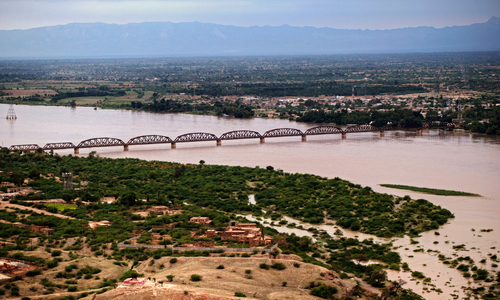The 1960 Indus Waters Treaty (IWT) is once again in the news, especially the role being played by the designated mediator, the World Bank. As a Bank representative starts to shuttle between New Delhi and Islamabad in an effort to resolve the disputes over Kishanganga and Ratle hydroelectric projects, Pakistan’s former Indus Water Commissioner Jamait Ali Shah speaks to thethirdpole.net.
Zofeen T. Ebrahim (ZTE): What is your view of the IWT situation now, especially in light of the ongoing dispute?
Jamait Ali Shah (JAH): In my view the World Bank has bowed to Indian pressure which in turn is stalling on the process of resolution by a Court of Arbitration (CoA). Only after having failed to resolve the issue bilaterally with India had Pakistan approached the Bank to set up the CoA. This was a last resort.
So the Bank’s request to restart start bilateral negotiations at the level of the Indus Commission is going to be an exercise in futility. To my mind, this dilly dallying on the part of the Bank only reinforces the latter’s intention to give impetus to Prime Minister of India’s threat of scrapping the treaty.
This is indeed very alarming for Pakistan and there is suspicion that India is pushing Pakistan for a Treaty II only on the western rivers, the waters of which had been allocated to Pakistan in 1960. That is why the Bank and the US are seen debating it and dictating Pakistan for an amicable resolution (revision in the treaty) bilaterally or with the involvement of a third party. Or at least India wants to get out of the restriction laid down on them in the IWT regarding western rivers, as India cannot liberally utilise these waters as per its will and demand.
ZTE: So what should Pakistan do?
JAH: The disinterest in the matter of the ministry of water and power in Pakistan has also added to the damage. Pakistan first notified India for resolution of the questions (on Kishanganga and Ratle projects) by a NE (neutral expert) and then withdrew it, then approached the Bank for a CoA.
I feel it was an issue to be resolved by the NE being technical/design in nature. Therefore, processing it through CoA was not required. But the question that comes to mind is to look deeper in the vested interest in the deadlock. Who is guiding Pakistan to go round in circles? Most importantly, who engaged the two law firms in Washington DC which decided to process the case for CoA through the Bank? Many people aim to benefit from the case being taken from one authority to another. I have learnt that the expenses incurred are PKR 300 million of which PKR 190 million has already been paid.
This interview originally appeared on The Third Pole and has been reproduced with permission.















































